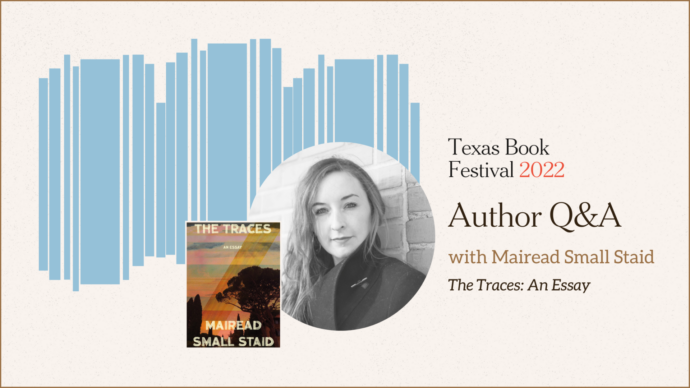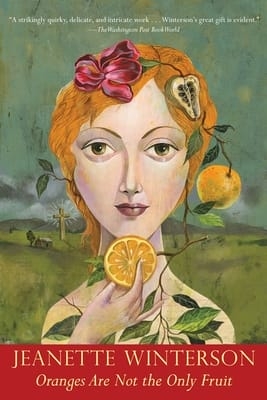Mairead Small Staid is the author of the novel THE TRACES: AN ESSAY.
TBF: Why did you write your new book? What was your inspiration? Where did the idea start?
MSS: I spent the fall of 2008 in Florence on a study abroad program. I was 20 years old and an aspiring writer, and my time in Italy was astonishingly rich in many ways: in inspiration and productivity, in offering the possibility of connection between my academic work and the creative life I hoped to lead, in friendships and romances, in newness, in pleasure, in literature, in art. (Rich in just about every way, then, except literally! As I was pretty broke.) I was incredibly happy, in other words, and this felt like a remarkable thing, as I had begun suffering from manic depression a few years earlier and had endured long depressive episodes in the year leading up to my trip. I was drawn at the time, as I think many would-be writers are, to the idea that suffering was useful and perhaps even necessary in making art—that my depression was inextricable from whatever talent I hoped I might have, whatever might be best, most interesting and most creative, about my work and myself.
But when, years later, I started trying to write an essay about my time in Italy through the lens of depression, the work refused to take shape. Over the course of many months and many false starts, I realized that happiness had become the more intriguing question to me, and I wondered if it might be possible to take happiness as a wholly serious literary subject, to consider its role in the creation of art as consistently as I (and others) had considered the roles of suffering, sorrow, and pain. I realized, however slowly, that I wanted to explore the possibility of making a different myth.
I also realized that the essay I was writing might actually be a book, a terrifying prospect. Desperate for some guiding structure, I thought I might borrow the form of a classic travel narrative, a kind of playful update on the Grand Tour of the eighteenth century. But I couldn’t get excited about such a straightforward narrative, however referential, and instead found myself (I wish I could remember how!) rereading a book I had loved long ago, Italo Calvino’s Invisible Cities. A travel guide to places that might not exist, Calvino’s book provided not only a structuring mechanism but a sounding board for many of the themes that had begun to orbit my central subject of happiness: place and time, memory and desire. It’s impossible, now, to imagine my work without his; the meeting feels inevitable.
TBF: What’s the last book you read, loved, and can’t stop recommending? Why is it so good?
MSS: Letters to Gwen John by the artist Celia Paul, which I recommend along with her earlier memoir, Self-Portrait. I went into great detail about the evocative qualities of both books in a review for the Los Angeles Review of Books, but what makes them so good, in a nutshell, is the way they make room for the reader between the lines. I don’t really know how to describe (or create!) this effect, but I find that many of my favorite reading moments occur when my eyes drift from the page, my own thoughts unspooling alongside the author’s. A great book, I think, is one that makes you want to talk back to it.
TBF: What’s the first book you remember reading? Who gave it to you?
MSS: I’m sure I read many sweeter and more wholesome picture books, but the earliest one I remember is Heckedy Peg by Audrey and Don Wood. It’s the frankly nightmarish tale of seven children turned into items of food (a loaf of bread, a wheel of cheese) by the eponymous witch and the horrors endured by their mother in the course of rescuing them. I’m sure the beautiful, painfully realistic illustrations—the lavish table arrayed with the children-turned-food is like a Dutch still life—were part of the reason it scared me so much, a nice lesson in the virtues of verisimilitude. It was absolutely terrifying and apparently unforgettable. I have no idea who gave it to me, but bless them.
Catch Mairead Small Staid on Saturday, November 5 at the State Capitol E2.010 from 11:00 – 11:45 at the 2022 Texas Book Festival!



